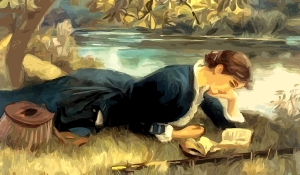As a writer, I know I’m not unique in having this issue. I sit down, and try to hack out a book or a review or something of that sort, and I feel like I’m doing little more than shuffling forward at hundred-year-old tortoise speed. This first draft is taking forever, I take ages between querying new agents, augh, I have to come up with another blog post.
This morning I decided to flip through a writer/artist book I haven’t skimmed in a while, The Artist in the Office by Summer Pierre. And I landed on this quote in the book:
How perfect. A reminder that writing, or any kind of creating, is a laying of bricks. You do these things one at a time, and it doesn’t seem like much, but you look back and you realize you’ve built a wall, a house, a skyscraper with each little addition.
It doesn’t matter that I only wrote a page this morning. I have one more page than yesterday. I entered a contest yesterday — one more contest. I’ll query an agent this week — one more agent. I’ll run today, and that’s one more mile. I’ll hit the Publish button, and there’s one more blog post.
It all adds up eventually, hopefully to something.

What’s one thing that you’ve done today? Did you read a book? Draw a picture? Outline a chapter?








 hadow of an
hadow of an 